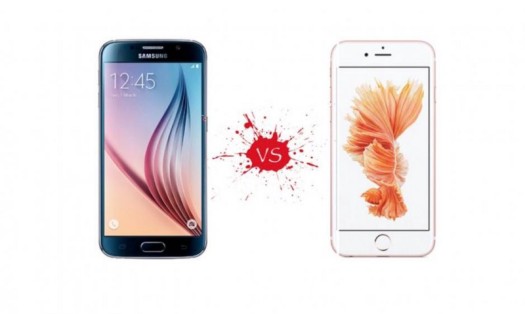
On 29th March 2017, Samsung has launched its much awaited top-of-line smartphones Galaxy S8 and Galaxy S8 plus, in an event in New York. As we all know 2016 was an unfortunate year for Samsung due to a regretful failure of Galaxy Note 7. The company might have faced the loss of millions of dollars but the loss of its reputation in the market and a faith towards brand in the eyes of its users was more harmful. It was a vital challenge for the company to regain its reputation and consumer base. To do so the Korean tech giant put all its time and efforts to build a holistic piece of technology with the best set of features and specifications to make up for this huge loss and finally came up with its new launch, the world was having an eye on.
Update: ZeroWaste is now InstaCash
The question is, would it be enough to reclaim the same control and influence over the market, what the brand used to have? And more importantly, would Galaxy S8 be able to retain its presence against upcoming 10th generation iPhone, which is said to have game-changing features and specifications. Though we are also not sure about it at the moment, the best way would be to have a look at the battle between the sovereigns of Android and iOS to find out the champion of the sector.
1. Design:
Apple has recently added one more eye-popping colour option to its colour bucket for iPhone7 and iPhone 7 Plus, The RED Special Edition. Red aluminum finish is one of the coolest colour options of iPhone; you can’t get your eyes off. Apart from, Red iPhone offers silver, gold, rose gold, jet black and matte black colours. Samsung Galaxy S8 has the same glossy metal-glass body, which is reminiscent of its predecessors and offering five colour options which are Midnight Black, Orchid Grey, Arctic Silver, Coral Blue and Maple Gold. But glossy still works as a fingerprint magnet.
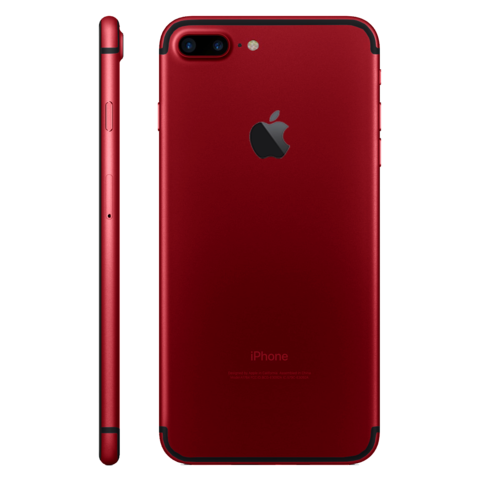
iPhone 7plus feels amazing while holding in hand with its slick design having 7.3mm width and 188g weight and the other hand Galaxy S8 Plus is 0.7 mm thicker but surprisingly 37g lighter in weight then iPhone.
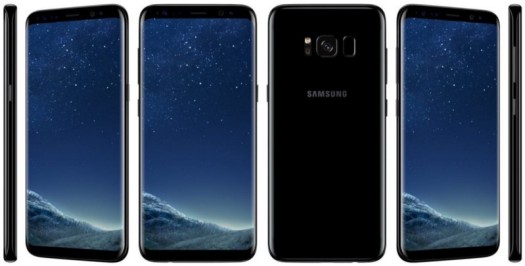
The phone has replaced its home button with the solid-state key, which can’t be pressed that means it is less prone to failure than its predecessor. However, iPhone’s inbuilt Taptic engine offers haptic feedback to the button which gives an impression to the user that the button is actually getting pressed.On the other hand, Samsung removed the home button from Galaxy S8 and built a pressure-sensitive display. iPhone 7 has no space for the headphone jack but Samsung still has one.
Though both the devices are outstanding with their slick looks, Galaxy S8 is more fresh and futuristic in approach.
2. Display:
Samsung Galaxy S8 offers a 5.8-inch QHD+ (1440×2960 pixels) ((~570ppi Pixel density)Super AMOLED display.S8 gives you a wider space to run your fingers on and sharper than 5.5- inch full HD LED-backlit IPS LCD panel on the iPhone 7 Plus (1080 x 1920 pixels) (~401ppi Pixel density).
The highlighted feature of Galaxy S8 is infinity display which comes with the dual curved screen with a wide aspect ratio 18:5:9 and a bezel-less design. It’s the first mobile to get Mobile HDR Premium certification from UHD alliance.
iPhone 7 plus’ display is more bright and fine than its predecessors and offers the same smooth 3D touch with the more user-friendly interface.
3. Performance & Storage:
The Apple iPhone 7 plus has set the benchmark of high performance with its 2.34GHz Quad-core Apple A10 Fusion SoC.The 3GB RAM processor and the Hexa-core PowerVR Series 7XT Plus GPU ensures a high-quality gaming experience.
Samsung Galaxy S8 and S8 Plus are powered by all-new Qualcomm Snapdragon 835 SoC for the American market and International markets (including India) will get Exynos 8895 SoC powered Galaxy S8 & S8 plus.
The all-new 10 nm processor is mated with 4GB of RAM which provides 10%more power to the CPU and 21 % more support to Adreno 540GPU on board. The new chipset makes it the first in the world to feature support for 1 gigabit LTE.
When it comes to storage Samsung Galaxy S8 is packed with 64GB of internal storage, which is further expandable up to 256GB with an external microSD card while iPhone 7 Plus allows no expansion in storage. The company bid a goodbye to its 16 GB variant with the launch of iPhone 7 and now offers 32 GB, 128 GB, and 256 GB storage variant.
4. Camera:
On the camera front, the dual 12 MP camera on iPhone 7 Plus gave a considerable edge over the other competitors in range through the perfect implementation of technology. 2X Optical Zoom gives you a closer look at the subject without degrading the image quality. For selfies and video-calling, the phone has employed a 7MP f/2.2 shooter.
Samsung Galaxy S8 packs a 12 MP rear camera powered by Dual Pixel technology and aperture f/1.7 and an 8 MP front camera with smart autofocus for selfies and video calling. It allows you to take multi-click in one tap so that the perfect shot is not slipped. Expectations are really high with the Samsung’s new shooter.
Also Read: Best camera phones of 2016–17
5. Battery:
The Galaxy S8 packs 3000mAh Li-lon, non-removable battery which supports fast charging via both USB Type-C connectivity and wireless charging.
While the iPhone 7 Plus packs 2900 mAh Li-lon, a non-removable battery which long last under low to heavy usage as per the users’ reviews.
Also Read: Tips To Improve Battery Life of Your Mobile Device
6. Software & Connectivity:
The Apple iPhone 7 runs iOS 10.3 and comprise features 3d touch shortcuts, widgets, lock screen notifications and raise to wake. It is powered with better system applications and updates to Siri (allows to access Siri with the double tap on the home button).
The Samsung Galaxy S8 runs Android 7.1 Nougat. Stock UI has been replaced with Custom UI in the newbie in order to minimise the power consumption. Samsung has also introduced a new virtual assistant to the world called Bixby, which works like Apple’s Siri and Google’s Assistant and reduces the needless efforts and swipes by the user. A separate button has been incorporated into the phone for Bixby.
Both the Smartphones are loaded with all the latest connectivity options and supports 4G LTE, Wi-Fi 802.11 a/b/g/n/ac, Bluetooth v4.2, GPS, A-GPS and GLONASS amongst others.
While the iPhone 7 Plus restricts NFC usage to Apple Pay, the Samsung in contrary has no such restrictions. The Dual-Audio feature in Galaxy S8 allows the user to connect with two Bluetooth headphones all together.
7. Additional accessories:
Samsung announced the launch of DeX mobile-to-PC transition tool that can turn the Galaxy S8 into a desktop and will offer the users an Android-based desktop-like experience.
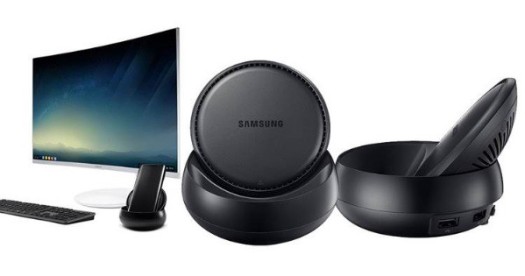
Apple has launched a wire-free lightning ear pods, Apple AirPods, which can be connected with the phone via blutooth. The Accelerometers and dual optical sensors allow the AirPods to automatically give pause & resume music command when removed and plug back in.
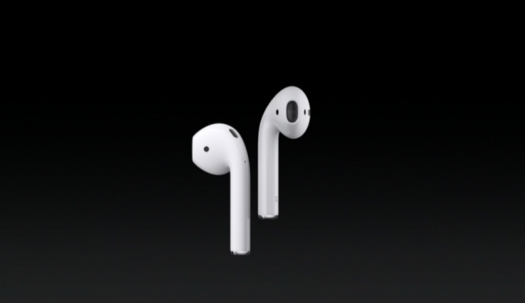
Also Read: Upgrade your smartphone smartly
As we have seen that the Samsung is offering a lot of best features and specification which are currently in demand by the consumers. For now, I’m very much optimistic about the S8 as an all-rounder that will help Samsung to improve its charred reputation. But the true results will be in hand by April 2017 with the finest reviews of the real world users when the phone will be launched in India and that will show how close Samsung has truly come to recover from its loss.
Note: This post was originally published in April 2017 and has been completely revamped and updated for accuracy and comprehensiveness.
